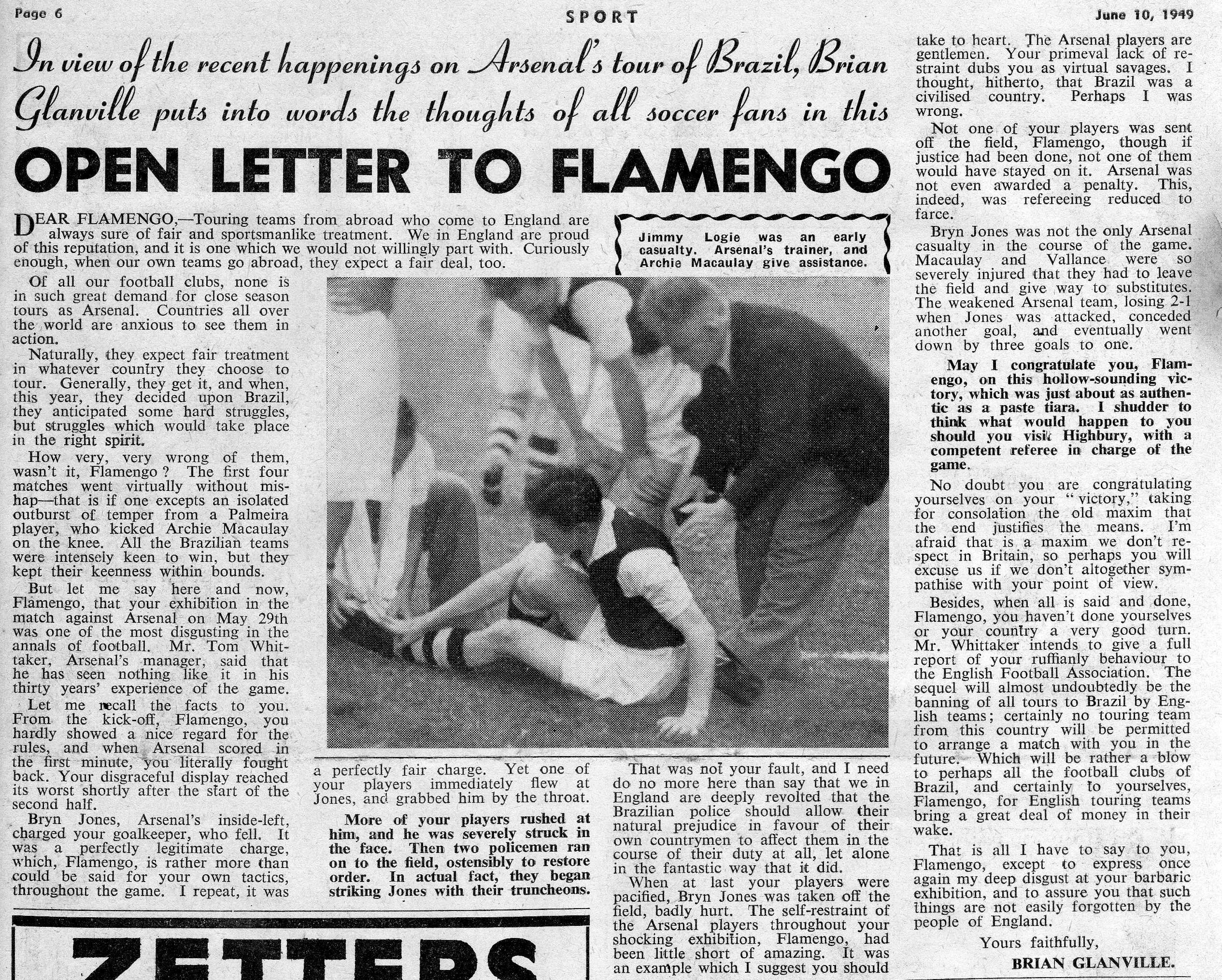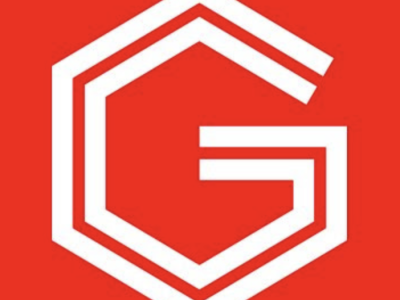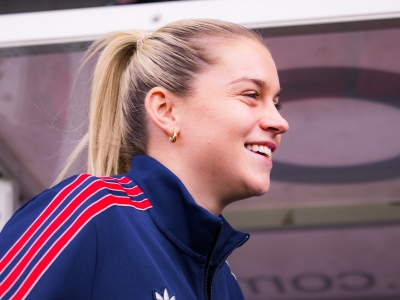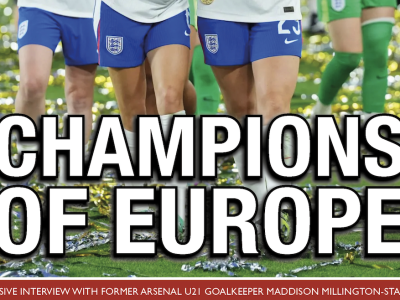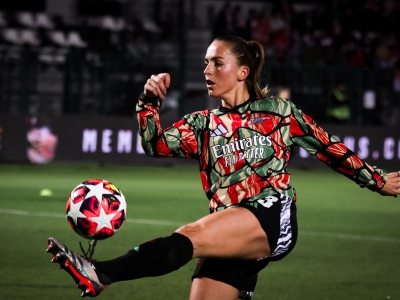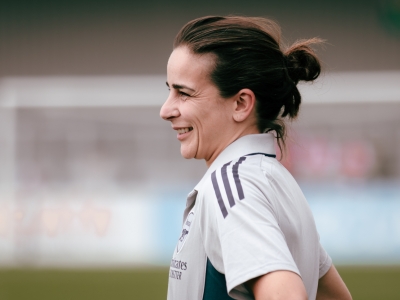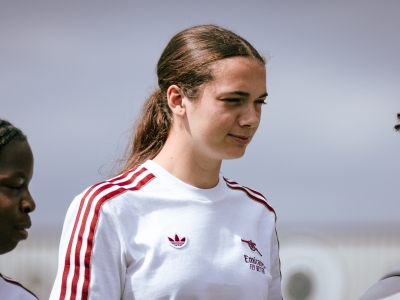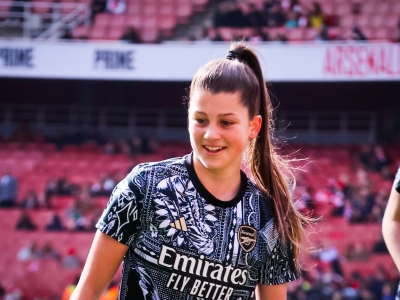A tickertape reception from a football obsessed city, and headlines of: ‘Rio welcomes the world’s greatest football machine’, greeted the Gunners as they flew into Rio de Janeiro in the summer of 1949, for a much vaunted and anticipated close season tour of Brazil. The trip overseas was becoming a staple part of the football summer break: the Gunners’ tour to South America would be bookended with similar tours to Portugal in 1948, and one to Switzerland in 1950. They would become lucrative affairs for both guests and hosts; and in Arsenal, the British government had a blue chip cultural offering which was welcomed around the world and seen as the very best of British. The role of ambassadors and vessels of soft diplomacy sat easily on the shoulders of the establishment’s favourite club.
It was a tour which was planned with anticipation, arranged with eagerness, and contemplated with relish and yet it very nearly had to be abandoned following one match in particular against Flamengo, which resulted in baton and truncheon wielding police officers entering the field of play, and post-match identity parades staged to allow Arsenal to identify the chief instigators of violence against them following a match which compelled Brian Glanville, one of a posse of journalists covering the tour for the British press, to forcefully express his deep outrage at Flamengo’s ‘barbaric exhibition’: ‘disgusting’, ‘disgraceful’, ‘sickening’, ‘virtual savages’.
It was a far cry from when British Pathé News had covered Arsenal’s departure, all waves, smiles and sunglasses. Arsenal had hastily changed arrangements for their departure, chartering two planes for the party to fly out instead of the usual one, a swift and very pragmatic response to the horrific Tragedy of Surperga, which had occurred only days prior to Arsenal’s flight taking off, when the entire playing and coaching staff of the great Torino team of the forties were killed when their plane crashed in fog into the Basilica of Superga on the return flight from a friendly against Benfica.
Glanville had earlier reflected upon the box office pull of Arsenal’s reputation, ‘countries all over the world are anxious to see them’. As a result the itinerary for the tour stretched to a demanding seven fixtures between 15th May and 4th June, a mere 20 days. In addition to this the Gunners had only a very depleted squad at their disposal; a squad reduced in both stature and numbers by the absence of three key players: two of them arguably the reason why there was such interest in the Gunners abroad: Denis and Leslie Compton had other commitments at Lord’s with Middlesex (and Denis had also the matter of a Test series against New Zealand); while club skipper Joe Mercer had a grocery store to run! It was likely to be a highly demanding sequence of games, notwithstanding the compact nature of the seven matches, there was also the dramatically different conditions that the games would be played in from ones familiar to the players, which resulted in manager Tom Whittaker arranging for oxygen tanks to be made available to the players at breaks in matches and training.
After only a few days acclimatisation in the airless, tropical savannah climate, and a mere 8 days since their final league match of the domestic season, the tour kicked off with a comfortable 5-1 stroll against Fluminense, which rather put paid to the rumour circulating that the players of every team to face Arsenal were all on £50 a man to win their game. In front of 60,000 the Gunners added yet more lustre to the gilded reputation already preceding them. Four goals from Doug Lishman had set the tone and Arsenal duly moved on, after two days rest to meet with Palmeiras. In front of another crowd in excess of 50,000 a first half goal from Jimmy Logie was cancelled out in the second half for a 1-1 draw. Next up was Corinthians and another goal from Lishman, plus one from outside-left, Tom Vallance, the brother-in-law of Stanley Matthews, secured a 2-0 success. For poor Vallance it was a brief moment in the sun, for his seven year Highbury career would be so blighted by the double fracture he would suffer at the start of the next season that his appearances at Highbury would be limited to a mere 15 starts.
Game four brought the first defeat, 0-1 against Vasco de Gama so with three games left it was time to meet Flamengo, the side from Rio whose players had a reputation for being ‘strange’, they had been known to set fire to opponents’ stadiums when losing a match. In keeping with their fiery and feisty reputation, the Flamengo team had started out life following a dispute between several Fluminense players and the board, the result was the players walked out and formed the football section of the Flamengo Rowing Club.
On Sunday 29th May 1949, things got off to a cracking start with a goal from young centre-forward Peter Goring; it was to prove an all too brief moment of calm equilibrium, for soon after the goal the Brazilian team’s agenda became all too apparent. Glanville, in an open letter to the Flamengo club written in anger after the final whistle, argued that ‘when Arsenal scored in the first minute, you [Flamengo] literally fought back; your disgraceful display reached its worst at the start of the second half’.
By half-time Flamengo had scored two classy goals amidst a flurry of flying fists, elbows, and feet that went on unchecked all over the pitch. Ten minutes into the second period, with Arsenal pressing for an equaliser, there occurred the flashpoint which truly ignited the antipathy which had been simmering from the off and which was souring the atmosphere of the game: though when it came, Flamengo might wish to claim some mitigation, as the catalyst for the fighting and violence which ensued was a challenge by Arsenal’s inside-left Bryn Jones on the Brazilian ‘keeper. Even Glanville describes it as a ‘charge’ upon the ‘keeper which resulted in the goalie falling to the ground. This may not be as bad as it sounds given that in the ‘good old days’ players could shoulder charge a goalkeeper quite legitimately, indeed, Glanville, by now almost apoplectic with rage in the press box, twice dismissed the challenge as perfectly fair, presumably not just by the standards of European football but the laws of the game as they stood? Another report in an English paper suggested that Jones had only ‘bumped in’ to the ‘keeper. However, the Brazilians quickly demonstrated what they thought of it all:
‘[a player] immediately flew at Jones and grabbed him by the throat. More…players rushed at him and he was severely struck in the face. Then two policemen ran on to the field…they began striking Jones with their truncheons’.
By now both sets of players were fighting in the goal mouth and one British report enthusiastically described how the Arsenal substitutes all ran the length of the pitch simply to get involved! Jones, the victim, later described the assault: “a player came at me from behind and squeezed my throat, I could hardly breathe”; another report was more sensational, “a Brazilian leapt at Jones and struck him in the face”. Jones though was so badly injured that he could no longer continue, and he sat out the remainder of the match badly shaken with both Archie Macaulay, and Tommy Vallance who similarly were unable to continue after robust challenges. It took a full five minutes for an assortment of officials and police to restore order. Once restarted the game fell into pretty much the same pattern as before the Jones incident: Arsenal attacking, with Flamengo resisting in an increasingly desperate and thoroughly martial manner. As Arsenal chased an equaliser Flamengo exploited the inevitable gaps and stole a third goal to clinch, for them, a famous victory.
Tom Whittaker was appalled by what he had witnessed but perhaps predictably exonerated his own players for their part in the unseemly melee. “The worst I have seen in thirty years of football”, he said afterwards and threateningly confirmed Arsenal would be making a full report to the FA and would be encouraging the governing body to ban any future fixtures with Flamengo involving English sides. He stopped short of requesting a full ban on tours to Brazil in recognition of the courteous hospitality the club had so far received and the sporting manner in which the first four games had been conducted. Indeed, one of the Brazilians who was behind the invitation to Arsenal to tour in the first place, Armando Barcellos, stated in a press conference that, “the goodwill and sportsmanship in which the games have been conducted until this match, have been inexcusably marred by Flamengo’s bad conduct”. Although the Jones incident was the major set-to of the game, and one for which neither side was completely blameless, the unhappiness Arsenal felt towards Flamengo was less because of that attack upon them and more because of the unremitting fouling and violence directed towards them throughout the game, an approach which drew, in fairness, no retaliation from Arsenal men, something Glanville, again, marvelled at.
So shocked was Whittaker and the travelling Arsenal administrative entourage that the boss put squarely to his men the chance to call the remainder of the tour off and go home. Reporter John Thompson however confirms that:
‘They said that they would gladly carry out the rest of the programme, adding: “We certainly don’t mean to run away”.
With a smile Whittaker told the press that was what he hoped they would say, and added that was what he had expected them to say also. So it was on to the toughest game of the tour against the reigning champions Botafogo. The problem confronting Whittaker now was raising a team. With seven now injured and unavailable the small squad of already tired players was looking threadbare. However, a stirring performance from a makeshift Gunners abetted by two goals from Reg Lewis was rewarded with a 2-2 draw against, on paper, the leading opponents they would face. So with honour restored they arrived at their final game against Sau Paulo, where an unfamiliar looking Arsenal XI missed out narrowly, losing 1-0.
So of the seven games, the Gunners won two, drew two, and lost three and though they left with the goodwill of many who had encountered them on and off the pitch in Brazil, they unquestionably retreated with a small dent suffered to their reputation as being the ‘world’s greatest football machine’.
The 1949 tour in many ways predicted the annual circus of shame that would begin in the early sixties with the introduction of the Intercontinental Cup: which brought together in competition the champions of Europe and South America. The annual contest became a proxy for a thinly veiled geopolitical war where disgruntled South Americans got even with their one time imperial ‘masters’; and Europeans preached the credo of sportsmanship and playing the game to nations the European press would invariably dismiss as savages, with sometimes more, sometimes less good cause.
As a footnote, Arsenal returned to Brazil two years later in the summer of 1951 to enjoy the hospitality of this football crazy nation. They would play six matches, beating Sau Paulo 1-0 but suffering defeats in the rest of the programme: 0-2, 0-2, 0-2, 1-2, 1-3, and 0-4; one notable omission from the fixture list, there was no match versus Flamengo!
________________________________________________________________
You can follow The Gooner on
Twitter
Facebook
Instagram
or subscribe to our
YouTube channel
________________________________________________________________
Current issue of The Gooner available from our website shop
Issue 278 of The Gooner can be bought online.
If you want to buy a copy to be sent to you, click here for UK, and if you are abroad click here. On these pages you will find the various methods to pay or you can order through the Gooner store with a credit/debit card via PayPal.
If you wish to subscribe to all six issue of the 2019/20 season, UK and abroad options are on this page.
Support your fanzine!

